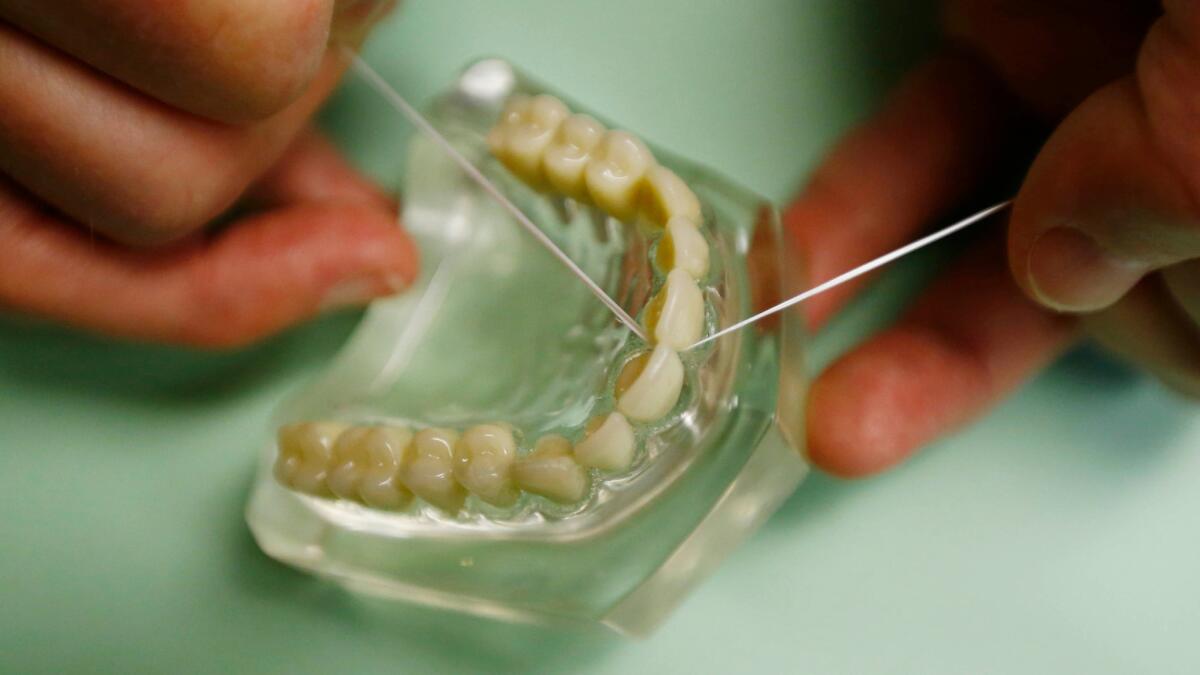Editorial: Flossing may not work—whaaaat?

- Share via
The news that flossing may not, in fact, be effective was something of a bombshell for, well, anyone with teeth. No doubt every floss-slacker who has sat guiltily in a dentist’s chair listening to a lecture on how flossing will save your teeth, your gums, your life from certain decay, bacteria, and systemic disease will take this as vindication and as an opportunity to throw out those little containers of waxy string unspooling on the bathroom counter.
An Associated Press investigation of various studies done over the last decade revealed that the research evidence for the value of flossing was weak or unreliable. One scientific journal paper that the A.P. found surveyed the literature on flossing and concluded “that a routine instruction to use floss is not supported by scientific evidence.” (Although the paper does say that dental professionals should determine, on a patient-by-patient basis, whether “high-quality flossing” was achievable. In other words — it’s not the floss’ fault; it’s yours.) And the U.S. Department of Agriculture and the Department of Health and Human Services have removed flossing from their latest dietary guidelines.
Needless to say, this has put the dental community on the defensive. The American Academy of Periodontology acknowledged an “absence of quality research,” but nevertheless advised patients to keep flossing.
For healthcare consumers, this is a familiar dilemma. The science...evolves. One day, fat is bad. The next day, it’s good. Annual mammograms are essential. Or maybe they’re not. Salt is evil and leads to hypertension. On second thought, not so much. On third thought, beware of it.
It’s a lot to chew on. But it’s not yet a new scientific paradigm shift on flossing. Mostly, it’s a call for better, more extensive research on flossing. And without getting into all the gristle-y details, doesn’t it make common sense to clean between your teeth? So while you’re waiting for new research, hedge your bets and keep the floss.
Follow the Opinion section on Twitter @latimesopinion and Facebook
More to Read
A cure for the common opinion
Get thought-provoking perspectives with our weekly newsletter.
You may occasionally receive promotional content from the Los Angeles Times.









